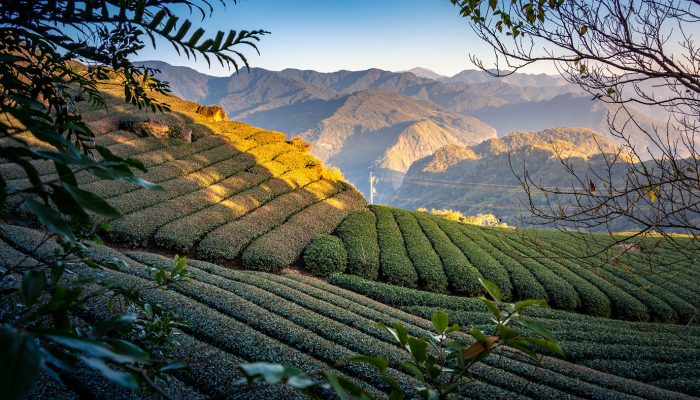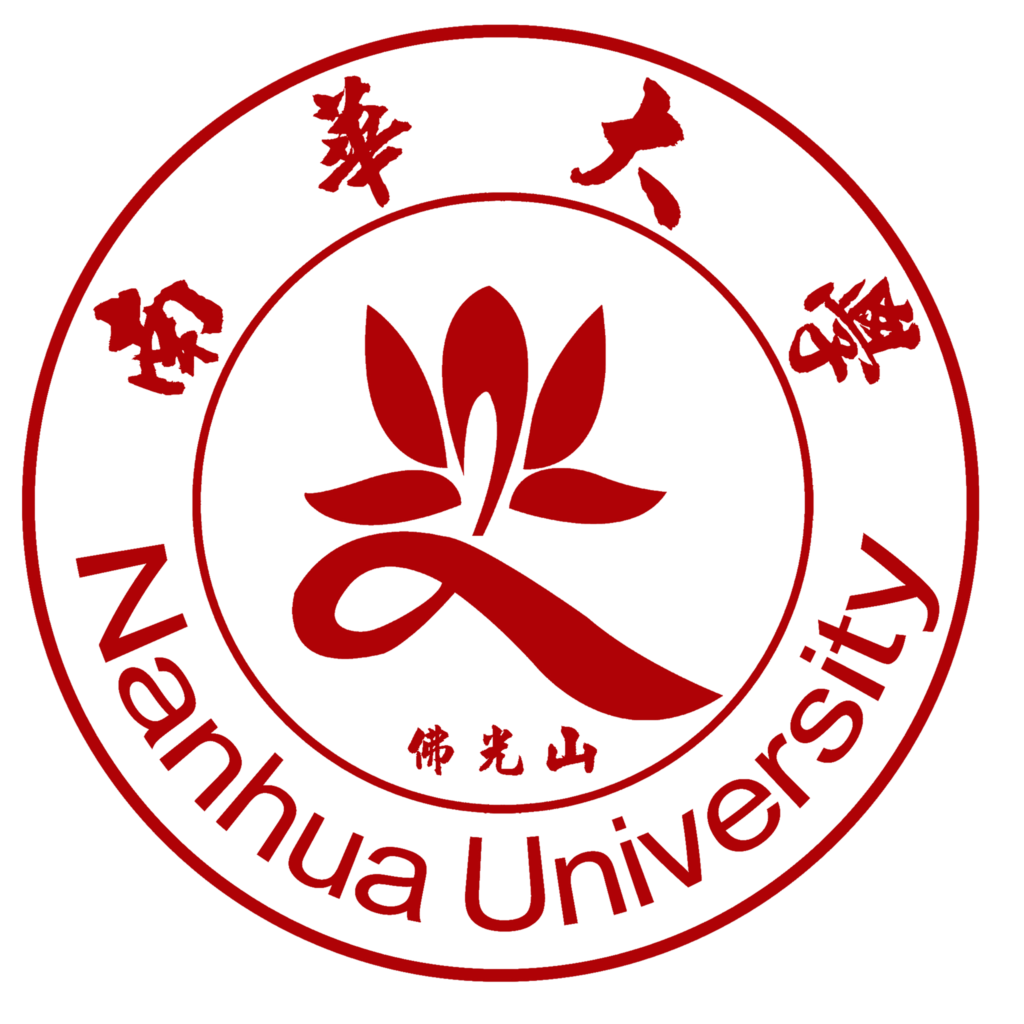The OWC Conference Tracks
4 Tracks to Inspire
The 21st IFOAM Organic World Congress (OWC) 2024 has been designed to address the multifaceted challenges and opportunities within the global organic movement.
The congress’s theme, “Cultivating Organic Solutions for True Sustainability,” necessitates a comprehensive exploration of various aspects of organic agriculture.
To achieve this, the congress is structured around four core tracks, each developed to focus on critical areas that drive sustainable agricultural practices and policies. These tracks reflect both local and international concerns, ensuring that discussions and outcomes are relevant to diverse contexts across the globe.
Track 1: Organic Culture and Lifestyle
This track emphasises the integration of organic principles into everyday life, focusing on how organic practices can enhance personal well-being, community health, and cultural heritage. It explores ways to promote organic living as a holistic approach that encompasses diet, health, and environmental stewardship.
Globally, this track addresses the growing consumer demand for organic products and the shift towards healthier, more sustainable lifestyles. It highlights the role of organic agriculture in fostering global well-being and cultural diversity, encouraging practices that can be adapted to different regions and communities worldwide.
In Taiwan, the promotion of organic culture and lifestyle is crucial for preserving indigenous and traditional farming practices and integrating them with modern sustainable living. By emphasizing local organic food systems, community health, and cultural heritage, this track seeks to strengthen the connection between people and their food sources, encouraging more sustainable lifestyle choices.
Track 2: Knowledge and Practice Sharing
This track is dedicated to the exchange of knowledge, experiences, and best practices among organic farmers, researchers, and practitioners. It aims to facilitate collaborative learning and innovation, ensuring that successful organic farming techniques and research findings are shared widely and adapted to various contexts.
Internationally, this track fosters a global community of organic practitioners who can learn from each other and collaborate on solving common challenges. By promoting the exchange of ideas and techniques, it supports the development of more resilient and adaptable organic farming systems worldwide, facilitating global agricultural progress.
For Taiwan, sharing knowledge and practices is vital to enhance local organic farming methods and integrate innovative techniques from other regions. This track supports the development of local expertise and encourages the adoption of best practices that can improve productivity and sustainability in Taiwanese agriculture and beyond.
Track 3: Growing Organic Markets, Rooted in Organic Principles
This track explores strategies to expand and strengthen organic markets while maintaining the core values of organic agriculture. It focuses on sustainable business models, market integrity, consumer trust, and the economic viability of organic farming.
Globally, the track addresses the challenges and opportunities in growing organic markets in different regions. It emphasizes the importance of maintaining organic integrity and consumer trust, which are essential for the continued growth and success of the organic sector worldwide. By exploring sustainable market strategies, it helps create economic opportunities for organic farmers globally.
In Taiwan, expanding the organic market is crucial for supporting local farmers and providing consumers with access to organic products. This track addresses the need for robust market infrastructure, certification processes, and consumer education to build a trustworthy and vibrant organic market.
Track 4: Policies for Scaling Up Organics and Agroecology
This track examines the powerful role of progressive policies in promoting and scaling up organic and agroecological practices. It focuses on the development and implementation of policies that support sustainable agriculture, environmental conservation, and social equity.
Internationally, this track addresses the need for cohesive policy approaches that facilitate the global transition to sustainable farming systems. It explores how international bodies, national governments, and local authorities can collaborate to create policies that promote organic farming, environmental sustainability, and social justice. By advocating for supportive policies, it helps drive systemic change towards global sustainability.
For Taiwan, developing supportive policies is essential for the expansion of organic farming and the integration of agroecological principles into mainstream agriculture. This track highlights the importance of government and institutional support in creating a conducive environment for organic agriculture to thrive.
Information
Abstract Acceptance List
In addition to the traditional presentation and discussion methods of general academic conference, the discussion format of parallel module of this congress also includes interactive and dynamic methods such as round table forums, fishbowl conversations, creative contributions of poems and dance performances. By participating in this congress, you can interact with good friends in the organic agriculture from all over the world, and work together to cultivate organic solutions for true sustainability!
Congress Tracks
Track 1: Organic Culture and Lifestyle
Track Objective
The main objective of the track “Organic Culture and Lifestyle,” is to explore and promote diverse cultural and lifestyle practices that enrich the organic movement. This involves highlighting the historical roots and traditional, indigenous knowledge that shape organic farming, fostering sustainable living practices, and enhancing public awareness and education through workshops and partnerships.
The track aims to strengthen local food systems, promote social sustainability, showcase indigenous wisdom, and emphasise the importance of Bio-Districts and territorial development in fostering sustainable agricultural practices and sustainable livelihoods. Additionally, this track seeks to encourage community and policy engagement, and emphasise the collective responsibility for safeguarding and promoting the traditional cultures,which are at the heart of organic agriculture. Overall, this track aims to promote a robust, inclusive, and sustainable global organic movement.
Topic 1: The roots of the organic movement
- Exploring how traditional knowledge enriches organic farming practices across diverse cultural contexts.
- Key historical milestones that shaped the development of organic farming and their relevance for the future of organic agriculture.
- Exploring different aspects of the principles of health, ecology, fairness, and care, which form the ethical and practical foundation of the organic movement.
- Showcasing educational initiatives that emphasise the roots of organic farming, strengthening welfare, community engagement and support for local organic food systems.
Topic 2: Encouraging organic living
- Initiatives to increase the availability and affordability of organic food in local markets and communities.
- Providing resources and workshops on creating organic home gardens and urban farming.
- Showcasing partnerships with NGOs and community organisations that promote organic lifestyles.
Topic 3: Bio-District and territorial development
- Working together – how the private and public sectors can jointly contribute to local sustainable food systems.
- The success of bio-districts for facilitating agroecological transition and promoting healthy diets and local consumption.
- The contribution of organic districts to agri-tourism and landscape protection.
- Showcasing grassroots approaches to revitalising rural areas and encouraging the youth to return to their hometowns.
- Highlighting community cohesion within Bio-Districts – building land identity and preserving traditional culture and art.
- Promoting food and agriculture education programmes in schools and communities to raise awareness about the benefits of organic farming and healthy eating within local communities.
- Supporting educational initiatives that connect urban and rural communities, fostering a better understanding of food systems and sustainable practices.
Topic 4: Indigenous Agriculture Across the Globe
- Presenting indigenous wisdom and its relationship and relevance to organic agriculture.
- Demonstrating aboriginal cultivation methods and crop selection that align with the local ecological environment.
- Sharing Indigenous culture and traditional knowledge, intertwined with religion, beliefs, and rituals in the ways of music, art, poetry and stories.
- Sharing community-based land governance models that emphasise cooperation, sharing, and collective responsibility.
Topic 5: Social sustainability
- Sharing Initiatives that promote gender equity and the inclusion of marginalised groups in diverse organic sectors.
- Approaches to ensuring fair wages, safe working conditions, and social equity within organic farming communities.
- Attracting new and young farmers to organic farming through education and support programmes – highlighting their importance in sustaining and innovating the organic movement.
- Encouraging social innovation and entrepreneurship within the organic sector to address social issues and create sustainable solutions.
- Encouraging community involvement in local organic farming initiatives to strengthen social ties and promote collective well-being.
Track 2: Knowledge and Practice Sharing
Track Objective
The main objective of the “Knowledge and Practice Sharing” track is to foster a dynamic and collaborative environment where experts, practitioners, and other stakeholders can exchange insights and innovations in organic agriculture.
This track aims to disseminate knowledge and best practice and empower participants to advance organic farming methods globally, highlighting innovation in the organic sector and covering subjects such as organic plant, livestock and aquaculture production, use of biocontrol, approaches to improve soil health and biodiversity, conservation agriculture, advances in soil conservation techniques, as well as supply chain innovations in the processing and manufacture of organic products.
The track will also explore successful approaches to creating an enabling environment for knowledge dissemination from different countries and regions,providing inspiration and ideas that can be applied elsewhere.
By fostering interdisciplinary collaboration and sharing of best practice, the track seeks to enhance the global adoption and maximise the effectiveness of organic agriculture.
Topic 1: Innovations in Organic Agriculture
- Innovative organic farming techniques that enhance farmers’ and ecosystems’ resilience to climate change, including water, soil, and energy management.
- Digital applications along the value chain that improve farm management and farmers’ livelihood.
- Plant and animal breeding innovations, such as participatory plant breeding and advanced in-ovo sexing technology.
- Innovations in organic food processing, packaging, and storage to reduce post-harvest loss and energy consumption.
Topic 2: Enabling environment for knowledge dissemination
- Knowledge dissemination schemes for farmers such as farmers schools, ToT (training of trainers) projects, public extension services, demonstration days, and farmers’ mutual knowledge sharing that enhance farmers’ knowledge along the value chain in organic agriculture.
- Organic demonstration farms that exemplify site-specific management techniques in organic agriculture.
Topic 3: Innovations in Organic Plant Production
- Practices that mimic the natural land use scheme, minimize agriculture’s disturbance to the land. and strike the balance between agricultural production and biodiversity, such as agroforestry, flower strips, and beetle banks etc.
- The importance of integrating legumes in organic agriculture in terms of human nutrient supplement in rural areas and livestock fodder.
- Biocontrol methods that reduce damage from pests and improve plant health, which are permitted to be used in organic agriculture.
- Sustainable on-farm resource management, including organic fertilizers, water and energy use (e.g., manure application, wastewater management and agrivoltaics etc.).
- New environmental-friendly biocontrol agents that are permitted in organic agriculture (i.e., natural enemies).
- Specific needs and innovations for pest control in organic agriculture in the tropics (warm regions) that have the potential for upscaling in other tropical regions.
- Challenges, opportunities, and specific needs for organic seeds, supply chains, regulations and development of varieties suitable for organic agriculture, in terms of pest-resistance, disease resistance and climate change.
- How crop rotation contributes to weed regulation in organic farming, including selection of rotation crop varieties, duration and season of crop rotation, and tillage requirement.
Topic 4: Organic Livestock and Aquaculture Production
- Organic agriculture-permitted methods that reduce disease occurrence and animal pain and suffering.
- How livestock and aquaculture production is integrated with crop production, collectively contributing to a closed nutrient cycle and improving the soil ecosystem.
- How livestock production contributes to energy generation on and outside the farm, such as biogas production.
- Organic livestock and aquatic products’ feed that reduce greenhouse gas emission (mainly methane), such as adjusting the ratio of grains and forage.
- Organic livestock and aquatic products’ feed that are better absorbed by animals and lead to higher feed conversion efficiency.
- Innovative husbandry approaches that enhance animal welfare in organic agriculture, such as cooling facilities under heat, more spacious shelter, slaughtering processes that reduce animal suffering etc.
- Challenges, opportunities, and specific needs for breeding new livestock breeds suitable for organic livestock husbandry conditions.
- Equipment in organic aquaculture ensures an isolated and non-contaminated rearing environment.
- Challenges and opportunities in organic aquaculture, including husbandry environment, certification, consumers’ perception and regulation.
Topic 5: Soil conservation in organic agriculture
- How on-farm resources (microbial, plant or animal material) are integrated to improve soil quality (physical, chemical and biological).
- How legume integration positively impacts soil fertility and other characteristics in organic agriculture.
- The importance of soil organic matter (SOM) and methods to increase SOM in organic agriculture.
- How crop rotation and mixed cropping systems improve soil fertility in organic agriculture.
- How can the balance of N, P, K in soils be maintained in organic agriculture?
- Methods that accelerate biodiversity restoration of the field in organic agriculture, which could be achieved by specific soil microbiomes.
- The emerging threat of microplastics and heavy metals in soil in organic agriculture, including microplastics from urban compost, mulching and fertilizer coating.
- The debate and discussion of different organic farming practices, including vegan farming, strategies to reduce tillage, cover crops, mulching systems.
Track 3: Growing Organic Markets, rooted in organic principles
Track Objective
The main objective is to enhance the development and expansion of organic markets while ensuring core organic principles are embedded throughout the value chain. This includes by:
- Advocating for the integration of health, ecology, fairness, and care into organic standards and certification processes to maintain integrity and trust.
- Examining ways to make markets more accessible and equitable, including by supporting decentralised and cooperative market structures that empower local communities and smallholders.
- Exploring approaches for boosting national organic markets, such as through public awareness campaigns, grassroots initiatives, integrated trading partnerships and government partnerships.
- Examining the most pressing challenges facing the global organic sector, highlighting approaches and innovations for combating fraud, the threats and risks posed by biotechnology, and other issues that potentially undermine the credibility of organic supply chains.
Topic 1: Elevating organic principles in organic standards and certification
- Advocating integration of core organic principles of health, ecology, fairness and care into standards.
- Shaping best practices in organic standards responding to the challenges and priorities of today’s world.
- Strategies to maintain integrity and trust in third-party certifications and alternative certification schemes, considering social, economic and environmental sustainability.
- Ensuring broad stakeholder engagement in the development and revision of organic standards to meet emerging market trends.
Topic 2: Accessible and fair markets and value chains
- Supporting decentralized market structures to empower local communities and enhance market accessibility for smallholders.
- Participatory Guarantee Systems (PGS) – their successes, challenges and opportunities.
- Strengthening cooperative models and farmer-led initiatives to facilitate collective bargaining, resource and knowledge sharing, and improved market access.
- Local Food Systems, Short Food Supply Chains and Alternative Food Networks, including CSA, farmers’ shop, organic farmer markets, e-commerce, public procurement, HoReCa, etc.
- Encouraging actor participation in decision-making processes and market development to ensure inclusive and participatory value chains with fairness and equity.
Topic 3: Seizing Opportunities: Fostering National Organic Markets
- Strategies for public awareness campaigns to boost national organic market demand.
- Approaches for ensuring widespread adoption and recognition of organic standards and certification.
- Encouraging and supporting grassroots initiatives and local community projects to drive organic market growth from the bottom up.
- Demonstrating partnership between government bodies and organic associations to support market growth.
- Organic sector mobilization for organic public procurement for restaurants, school meals and public canteens.
- Designing cold chain logistics systems to connect organic farmers with organic supply chains.
Topic 4: Navigating Global Challenges and Opportunities for Organic Markets
- Approaches for ensuring supply chain integrity and combating fraud.
– Combatting greenwash and positioning organic as a solution to global crises. - Tackling the growing challenges posed by new and existing biotechnologies, and seeking global collaboration for addressing and mitigating the risks they pose to farmers, consumers and markets.
- Strategies to maintain the credibility and transparency of organic supply chains globally.
- Overcoming barriers to organic trade – understanding challenges and sharing solutions
- Identifying new markets and innovative products to stimulate sustainable organic growth.
- Encouraging international collaborations and partnerships to enhance knowledge sharing and market access.
Track 4: Policies for Scaling Up Organics and Agroecology
Track Objective
The main objective of the track “Policies for Scaling Up Organics and Agroecology,” is to explore successful ways to develop and advocate for effective policies that support the expansion of organic farming and agroecology. The track will share lessons and successes from around the world by looking at effective and innovative local, national and global policies for scaling organic. It will also explore the role and opportunities of the emerging green finance sector in supporting the global growth of organics.
Topic 1: Local policies upscaling organics
- Public Procurement as a driver for organic farming and raising public awareness.
- Cities and counties developing organic farming around the world – lessons and opportunities.
- Discussions on how local governments can collaborate with farmers and support urban residents to participate in sustainable food value chains.
- Leveraging corporate canteen procurement to promote organic farming and raise public awareness.
Topic 2: National policies upscaling organics
- How national policies can respond to the climate and energy crisis by supporting organic farming and agroecology.
- Lessons and successes from across the world on developing organic policies and Action Plans to encourage organic and agroecological transition.
- Examples of organic policies showcasing and supporting organic transition, market development, regional and short supply chain initiatives, youth and women engagement and innovation in research.
- Opportunities for organic and agroecology policies in national climate and biodiversity plans. - Discussions on food and agricultural education and training policies to ensure the development of future agricultural talents and resources.
- Approaches for advocating for the allocation of the government agricultural budget to the organic sector.
Topic 3: Positioning organics and agroecology in global policies
- Status and lessons from efforts to position organics and agroecology as positive solutions within international treaties and conventions.
- Identifying key allies in promoting sustainable agricultural practices globally. Fostering collaboration and mutual support to address our synergies and differences while achieving shared goals.
- Regional measures supporting organic (e.g. EU, African Union).
- Bi-lateral and multilateral trade – the role of policies for addressing opportunities and barriers to scaling organics
Topic 4: The role of green and innovative finance for scaling organics
- What is green finance and how can it support the organic sector?
- What role International Financial Institutions like the World Bank, International Finance Corporation, and multilateral and regional development banks like Asian Development Bank, African Development Bank, Inter-American Development Bank and others could play in financing organic agriculture and trade?
- Impact investment and insetting – emerging innovations with potential to support organic.
- Leveraging development finance and official development assistance for scaling organic.
- Exploring the role of private finance for scaling organic.
Topic 5: Tools and best practice in Organic Policy Advocacy
- Cases and strategies for developing and executing impactful advocacy campaigns for organic policies.
- Cases and techniques for building coalitions and engaging key stakeholders, including farmers, consumers, civil society organisations, and policymakers.
- Cases and methods for integrating organic policy goals into broader national and international climate and environmental policies.
- Resources and training programs to enhance the advocacy skills of organisations.
Side Events

Pre-Conferences
For two days before the official opening of the OWC, professionals and researchers from around the world are invited to share their latest research, work and reflections among peers during pre-conferences.

Workshops
Workshops are independently organised one or more sessions during the Organic World Congress. Workshops allow researchers, farmers, experts and students to meet face-to-face and have interactive discussions.

Bio-Tours
Bio-tours provide OWC participants an opportunity to explore Taiwan’s organic agriculture and visit different sites and attractions in Taiwan.
